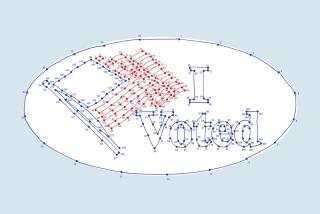Taco Bell Heir Serves Up More Convenient, Easier Way to Vote
- Share via
SACRAMENTO — Rob McKay could have used his Taco Bell zillions to travel the globe, dining on the finest cuisines. Instead, he went to places like Watts to nourish struggling communities. Now he’s taking the next logical step by making it easier for people to vote.
That’s a logical progression, the philanthropist says, because charity and volunteerism often can carry a cause only so far. Real, substantive change usually comes from the ballot box. People help themselves by voting.
“As I came to better understand the political landscape in California, I was dismayed by the lack of voter participation,” says the son of the man who built the Taco Bell chain.
“A lot of people say we just have to live with low voter turnout. I disagree.”
McKay is financing a November ballot initiative that would allow people to register to vote at their polling place on election day. Six states currently have election-day registration: Idaho, Maine, Minnesota, New Hampshire, Wisconsin and Wyoming.
A study by political scientists R. Michael Alvarez of Caltech and Stephen Ansolabehere of MIT found that election-day registration increases voter turnouts by 3 to 6 percentage points. In California, they concluded, turnouts could rise by perhaps 9 points because people here tend to be younger and move more--and don’t get around to registering.
California’s turnout in the March primary was embarrassing for a supposed enlightened state: only 24.6% of voting-age citizens, and a historically low 34.6% of those registered.
Sure, the primary was too early. Republican candidates for governor were uninspiring, and there was no Democratic contest. But low turnouts have been the trend in recent elections.
So up steps McKay, 37, of San Francisco, who manages his family’s philanthropic foundation and venture capital investments. Now he wants also to be an election reformer.
McKay spent $1.5 million gathering signatures to qualify his measure for the ballot. (The signatures have been submitted, but not yet verified.) He plans on kicking in up to $8 million for the campaign. “There’ll be serious funding.”
The family fortune comes from his father, Robert McKay, who as a Sherman Oaks architect was hired to design a fast-food restaurant for Glen Bell. McKay Sr. created those distinctive arches and the roof-top bell. In 1964, he was brought in to run Taco Bell and ultimately expanded the company from one restaurant in Torrance to roughly 1,400 nationwide.
Taco Bell was sold to PepsiCo in 1978, and the McKays became very rich.
Skip ahead to 1992. The McKays established their foundation aimed at helping community groups committed to economic development, faith-based organizing, a “living wage” and the like. Then South-Central L.A. erupted in riot.
“My rude awakening to philanthropy was walking the streets around Florence and Normandie with National Guard escorts,” he recalls. His foundation soon donated to several local organizations.
“But there’s a limit to what charities can do,” he says. “You also have to think about political strategy.”
A successful political strategy requires voter participation.
McKay insists this is not a Democratic Trojan horse. It’s bipartisan. He’s a Democrat, but “not in the sense of being a rah-rah partisan.”
The co-drafters of the initiative are two prominent political lawyers: Republican Vigo G. “Chip” Nielsen and Democrat Lance Olson. The lead consultants are Republican Donna Lucas and Democrat Gale Kaufman.
But, in reality, this is bound to benefit Democratic causes, because people who don’t vote tend to side with Democrats.
Many political pros will moan, because they like to identify probable voters long before the election and inundate them with misleading mail and nuisance calls. This would keep the electorate a mystery until polls closed.
Until this year, the registration deadline was 29 days before the election. It got shortened to 15 days, which county registrars hate. McKay’s proposal would return the mail registration deadline to 29 days, but allow walk-in sign-ups on election day.
Opponents will squawk about potential fraud. But this measure strengthens current fraud protections and requires proof of residence for election-day registrants.
Walk-in registration is logical. People should not be denied their democratic right just because they didn’t sign up early to vote. They should be allowed to get inspired at the last minute.
And no, he insists, “this is not a gambit to introduce Rod McKay to California politics. This is not a springboard.”
We’ll see. For now, this is the son of a fast-food pioneer trying to market one-stop, fast-voting in a state that can really use it.
More to Read
Get the L.A. Times Politics newsletter
Deeply reported insights into legislation, politics and policy from Sacramento, Washington and beyond. In your inbox twice per week.
You may occasionally receive promotional content from the Los Angeles Times.











